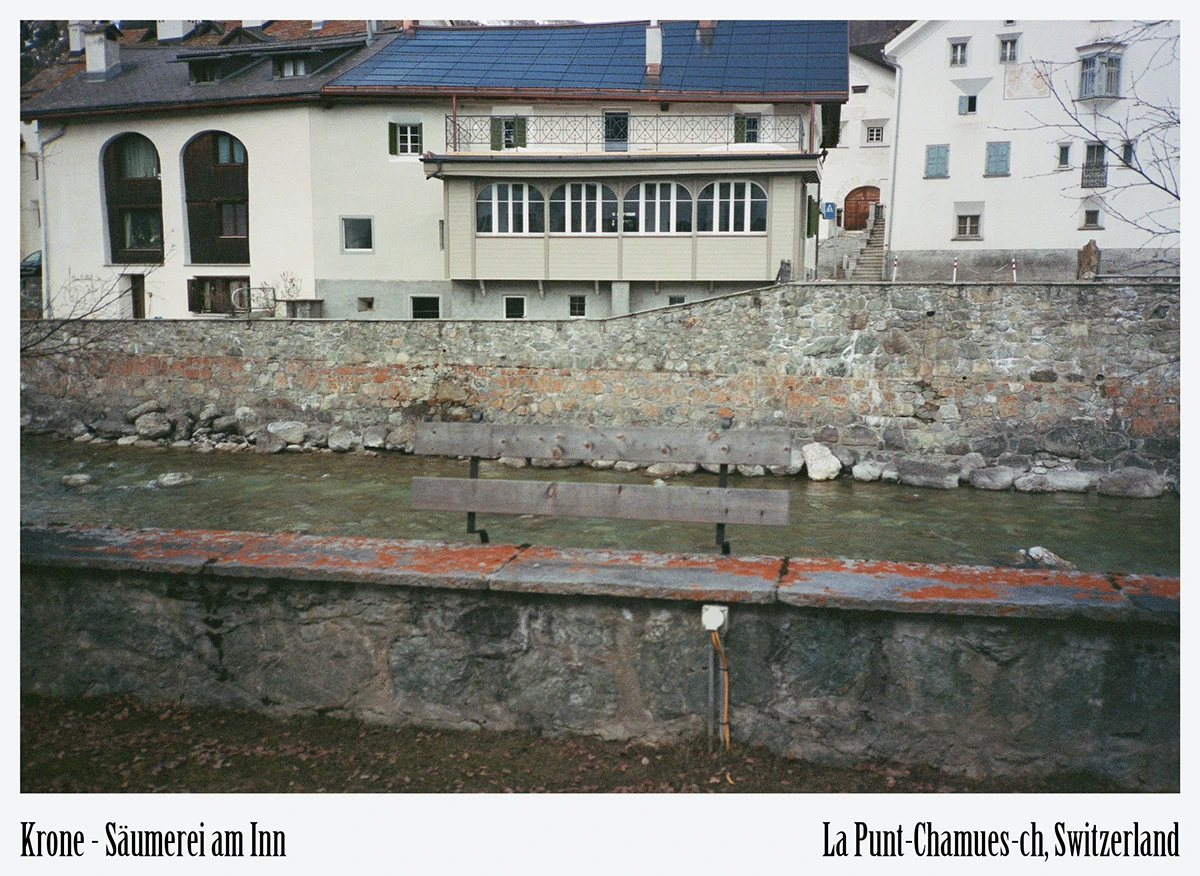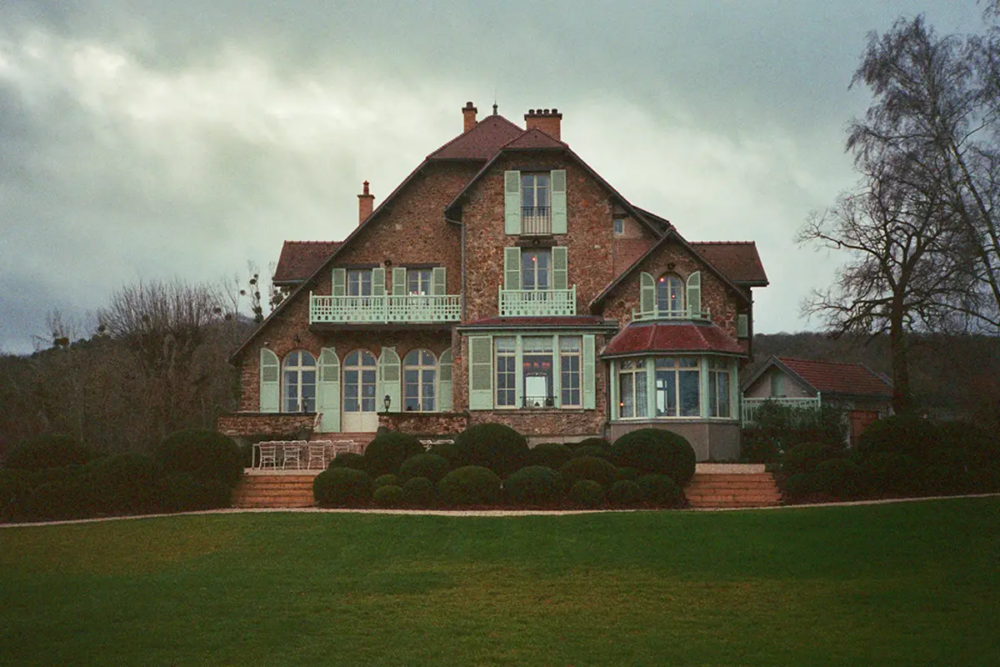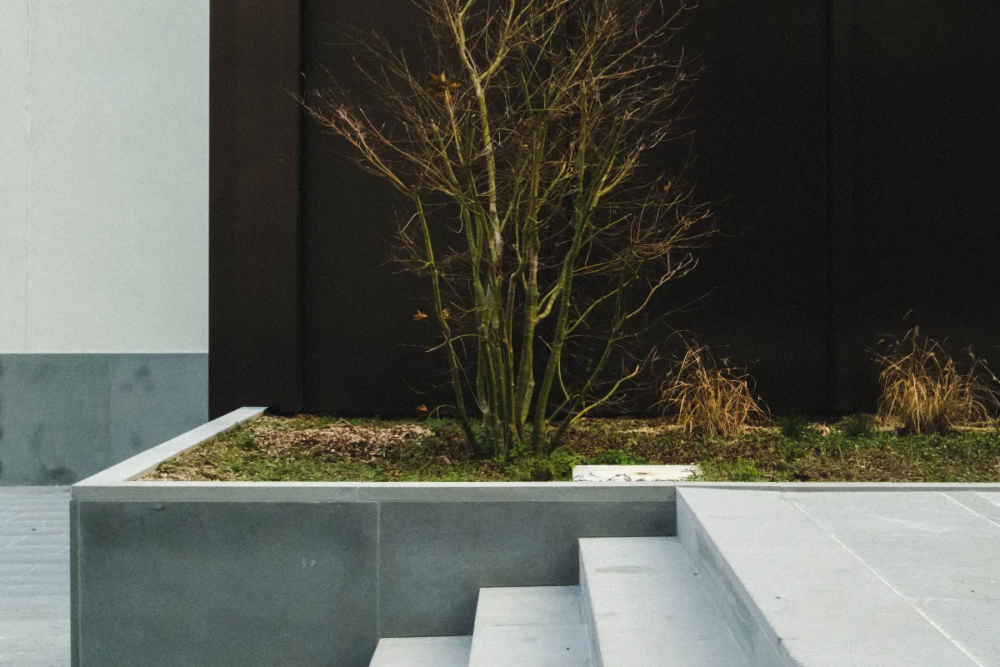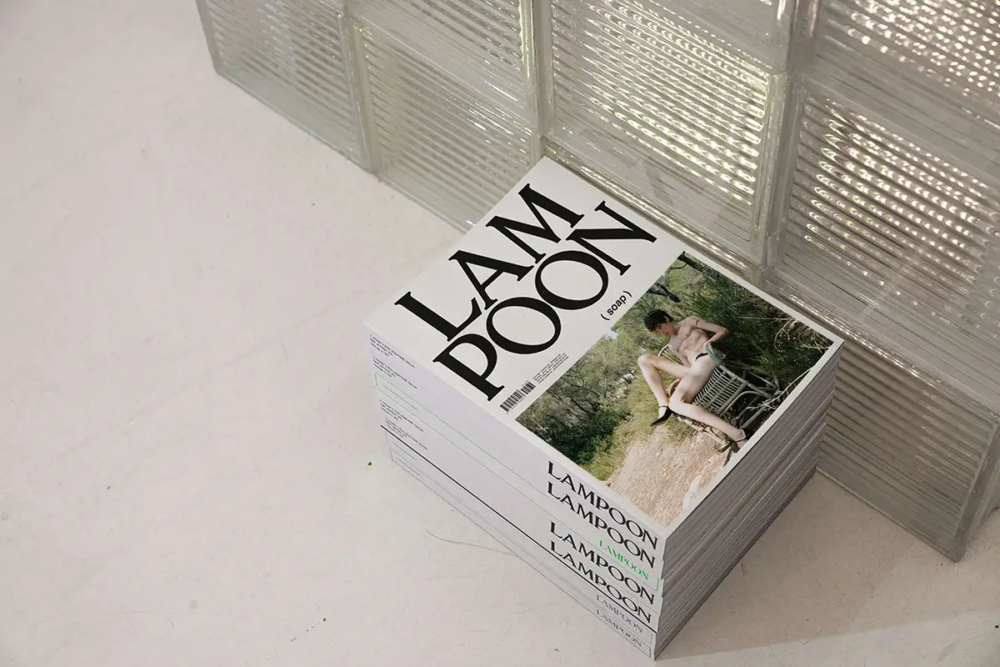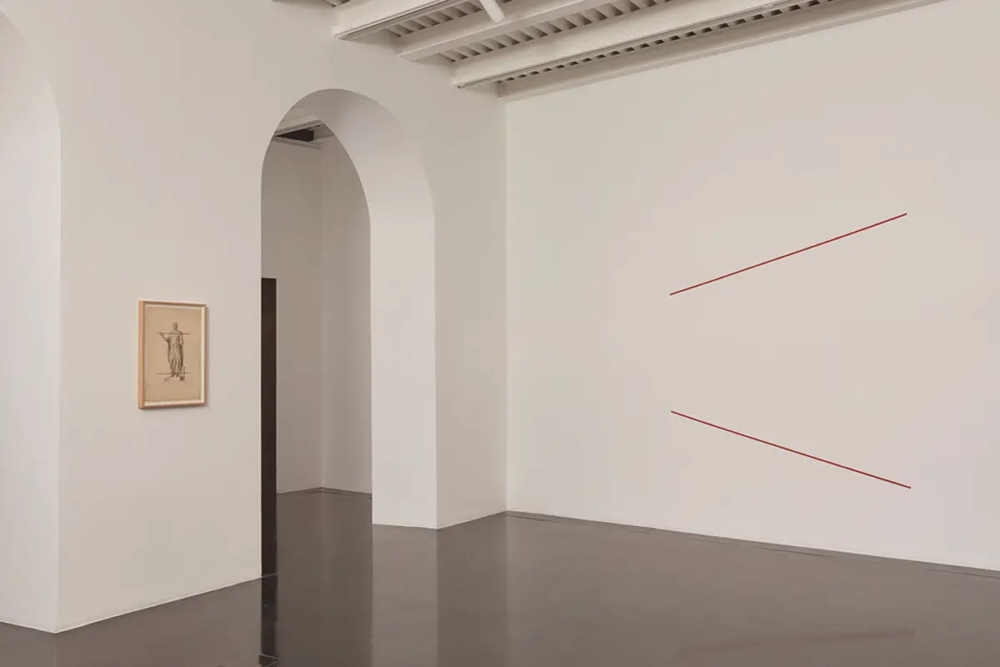
Krone Säumerei am Inn, Engadin: Craft, Raw Materials and Upcycling
A Sixteenth-century building in Engadin, restored with traditional techniques and raw materials, aims at setting a model for sustainable travel and contemporary environmental awareness
Hotel Krone Säumerei am Inn: sustainability rooted in material, time and community
In La Punt Chamues-ch, a small village in the Upper Engadin valley, Hotel Krone offers a concrete reflection on how hospitality can coexist with environmental responsibility. Originally built as a patrician house in 1500, the structure embodies an architecture of resilience. Its recent restoration avoids any spectacular intervention: instead, it reaffirms a historical continuity through low-impact practices.
Sustainability here is not projected as a marketing strategy but operates silently across material choices, energy systems, and food supply chains. In the context of the alpine environment, where tourism’s ecological impact becomes increasingly visible, Hotel Krone represents a model based on restraint, repair, and local integration.
Sustainable travel: infrastructure beyond transport
The conversation around sustainable travel often reduces to low-emission transport options. At Hotel Krone Säumerei am Inn, it extends into how a destination operates internally. The restoration project focused on reusing pre-existing materials rather than introducing new ones.
Where interventions were necessary, choices prioritized local sourcing. Stone was quarried nearby; wood was reclaimed from deconstructed farmhouses in the region. The focus was not only on reducing carbon emissions linked to material transport but also on preserving the environmental balance of the surrounding area.
The hotel’s operations follow a slow model of tourism. Guests are encouraged to engage with the natural landscape through low-impact activities: walking, cycling, or using public transport systems powered by local renewable energy sources.
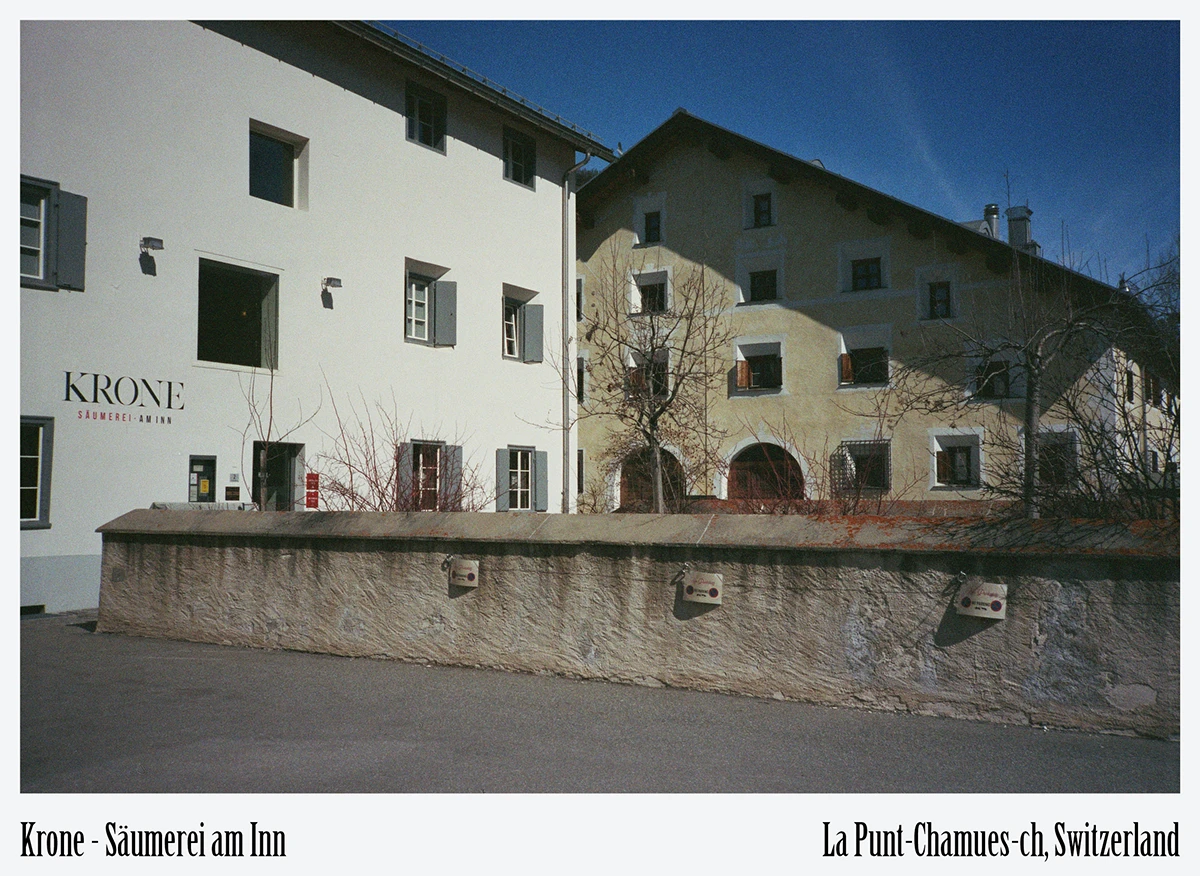
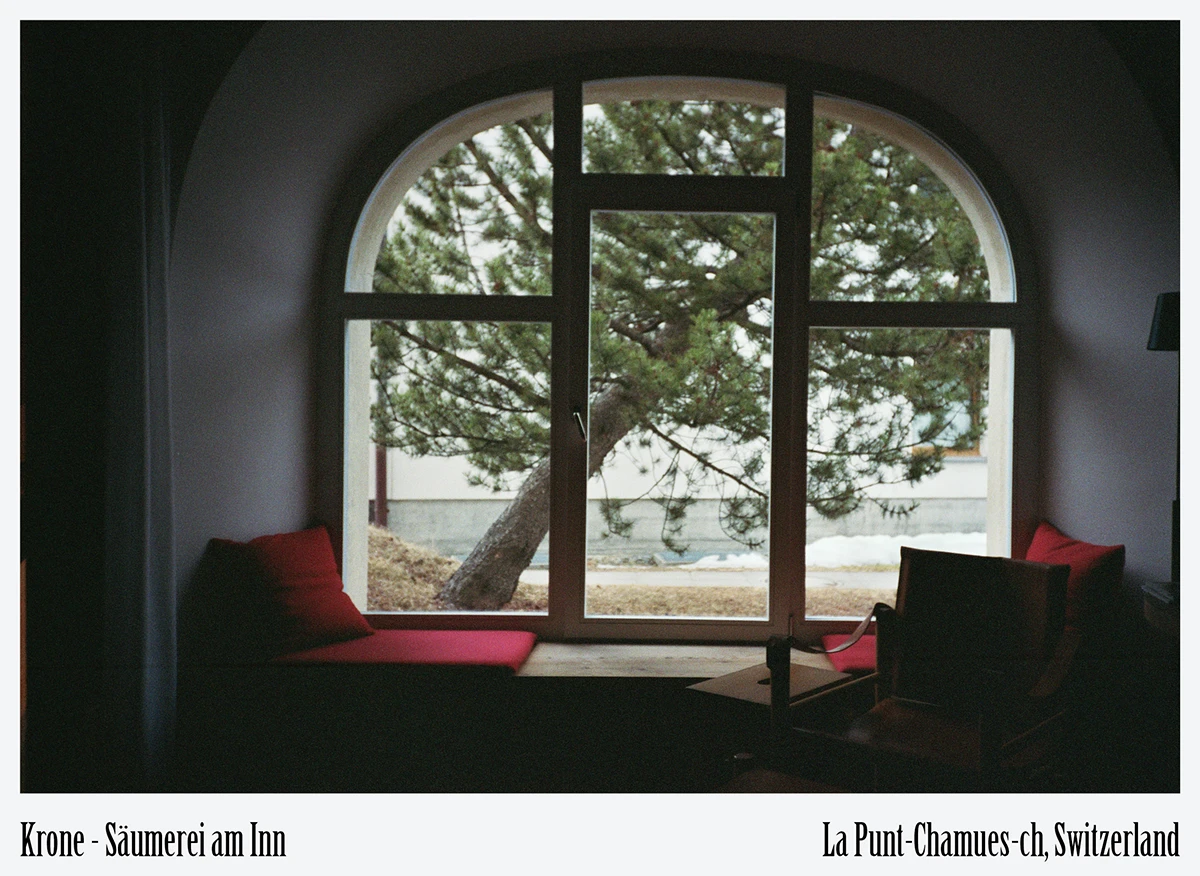
Naturally sourced textile fibers and local craftsmanship
Hotel Krone’s interiors reflect a deliberate material ethic. Bedding, curtains, and upholstery are made with naturally sourced textile fibers such as linen and hemp — crops that require less water and fewer chemical treatments than conventional cotton.
The furniture and textile elements were developed through collaborations with local artisans to support small-scale craft manufacturing while minimizing the environmental impact associated with mass production and global supply chains. Maintenance and repairs are conducted on-site or through local workshops, extending the lifecycle of every object in use.
Rough architecture: redefining luxury through minimal intervention
The building’s restoration maintains the roughness of historical architecture. Surfaces are minimally treated. Walls retain irregularities accumulated over centuries. Wooden beams show signs of prior use and adaptation. This approach reduces the need for intensive chemical treatments, synthetic finishes, or imported design elements. It wants to challenge ideas of luxury based on polish and perfection, proposing instead a form of spatial honesty.
Rough architecture here operates as a sustainability strategy: minimal finishing translates into lower energy use, fewer toxic materials, and reduced long-term maintenance needs. Instead of layering new identities onto the building, the project highlights its accumulated material memory.
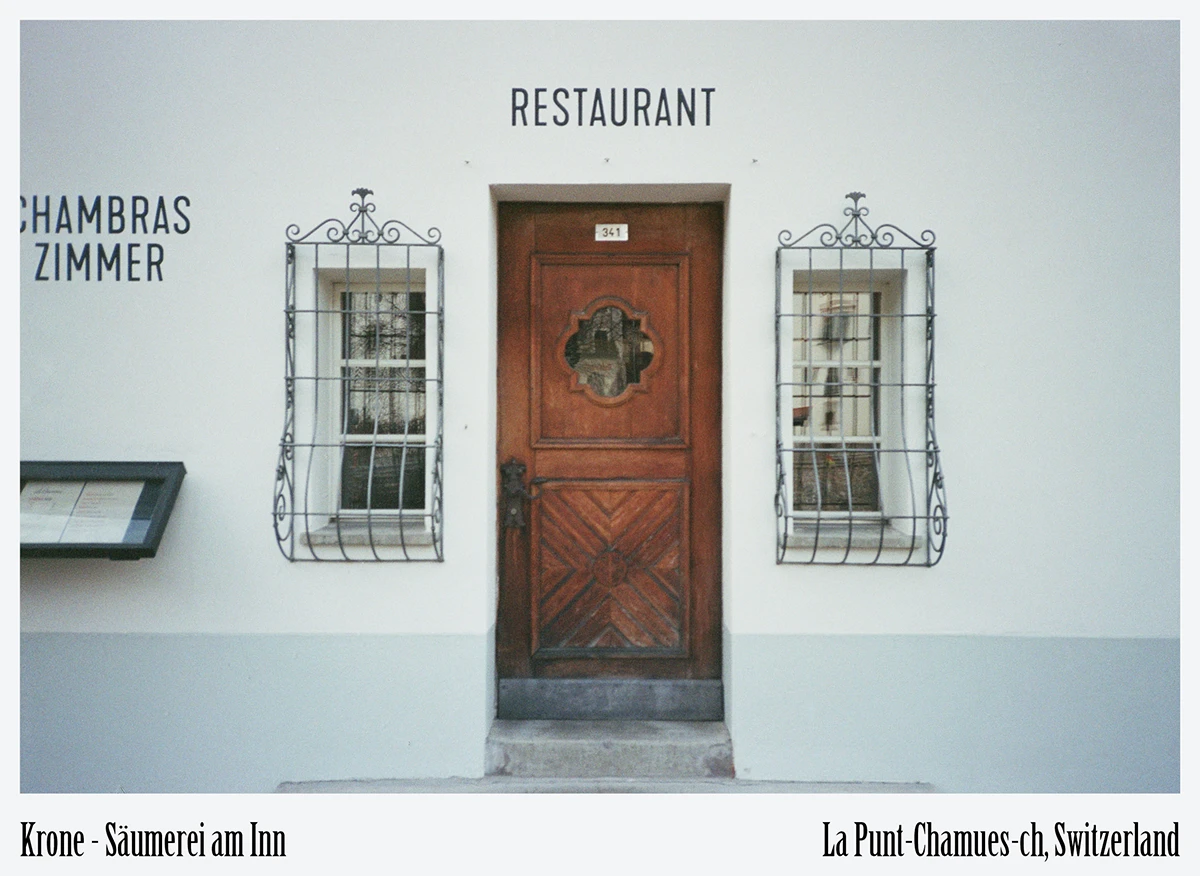
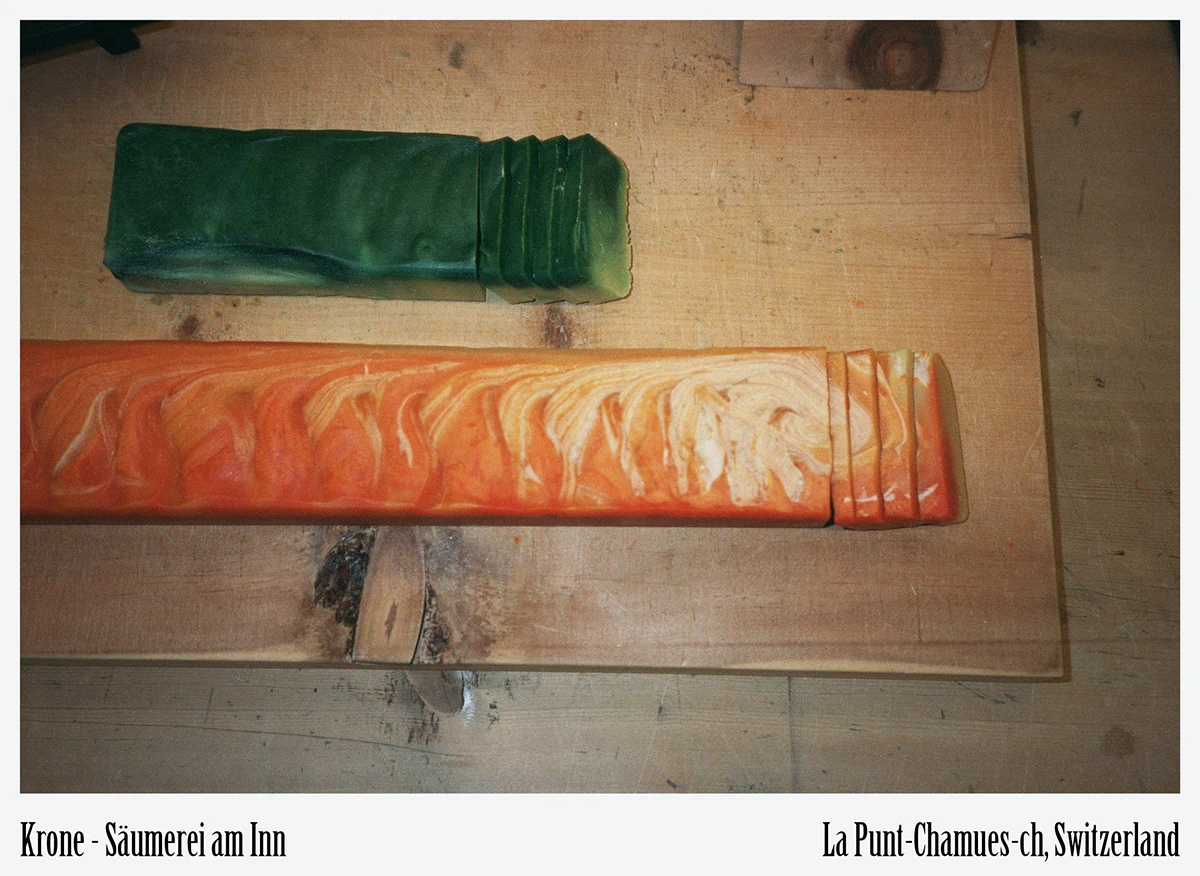
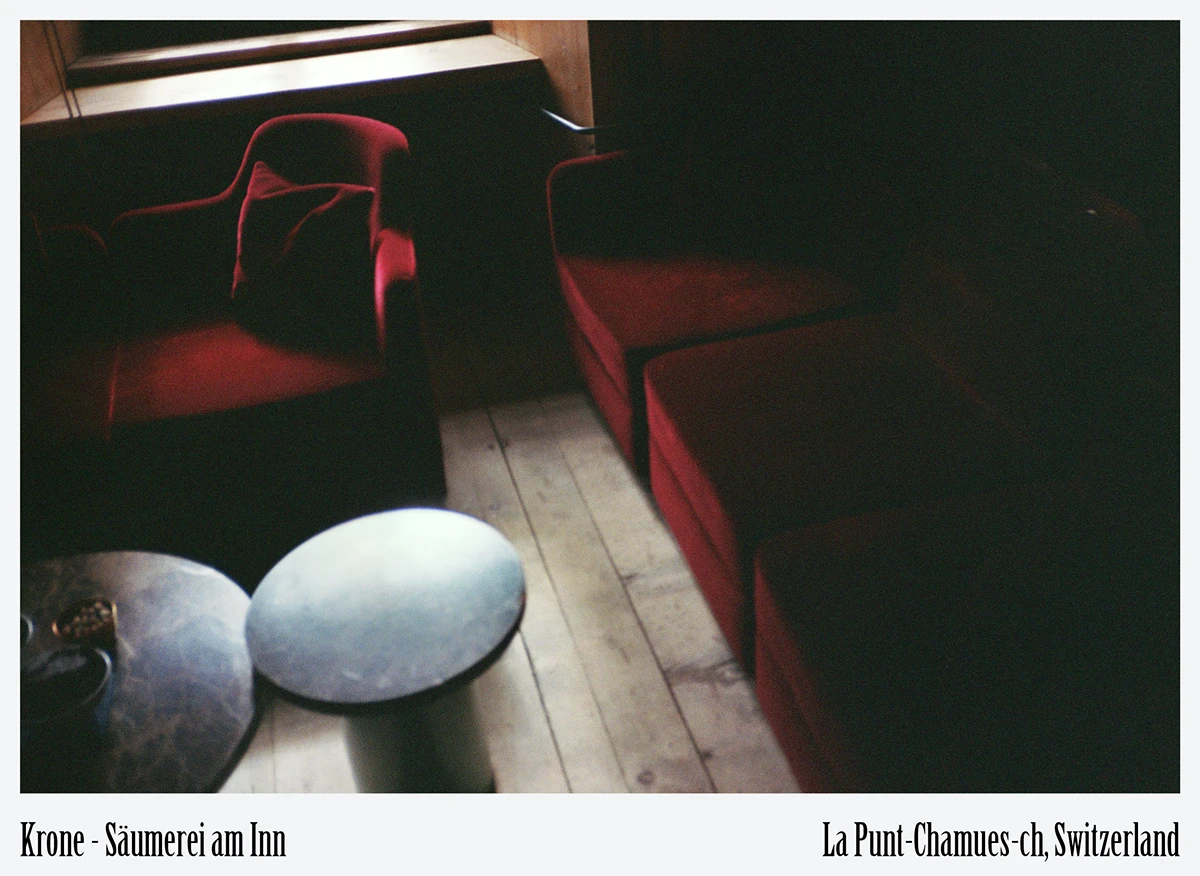
Craft manufacturing: circular economies in practice
Circular principles are embedded into Hotel Krone’s daily operations. Craft manufacturing is not positioned as an aesthetic gesture but as a functional necessity to minimize waste and resource consumption.
Furniture made for the hotel is designed for longevity. Elements such as door handles, tables, and chairs are produced in limited series by artisans who can repair and adapt them over time, ensuring that replacement cycles are significantly extended.
The hotel’s textiles come from small workshops operating within a few hundred kilometers of La Punt. Textiles used for uniforms, towels, and guest amenities prioritize organic certifications, natural dyes, and traceable supply chains. Waste fabric is repurposed into smaller items or maintenance materials to maintain internal circularity.
Reducing waste in hospitality: systems of attention
Reducing waste at Hotel Krone is not confined to guest experience. Waste management is incorporated into back-of-house systems through separation, composting of organic materials, and elimination of single-use plastics.
The kitchen sources ingredients locally to cut down on packaging waste and food miles. Seasonal menus are developed in collaboration with farmers and producers from the Engadin region, creating short supply chains that favor biodiversity and local economies.
Water usage is monitored through conservation systems. Linen changes and room cleaning services are managed according to guest needs, not pre-set schedules, to minimize the unnecessary consumption of detergents, energy, and water.
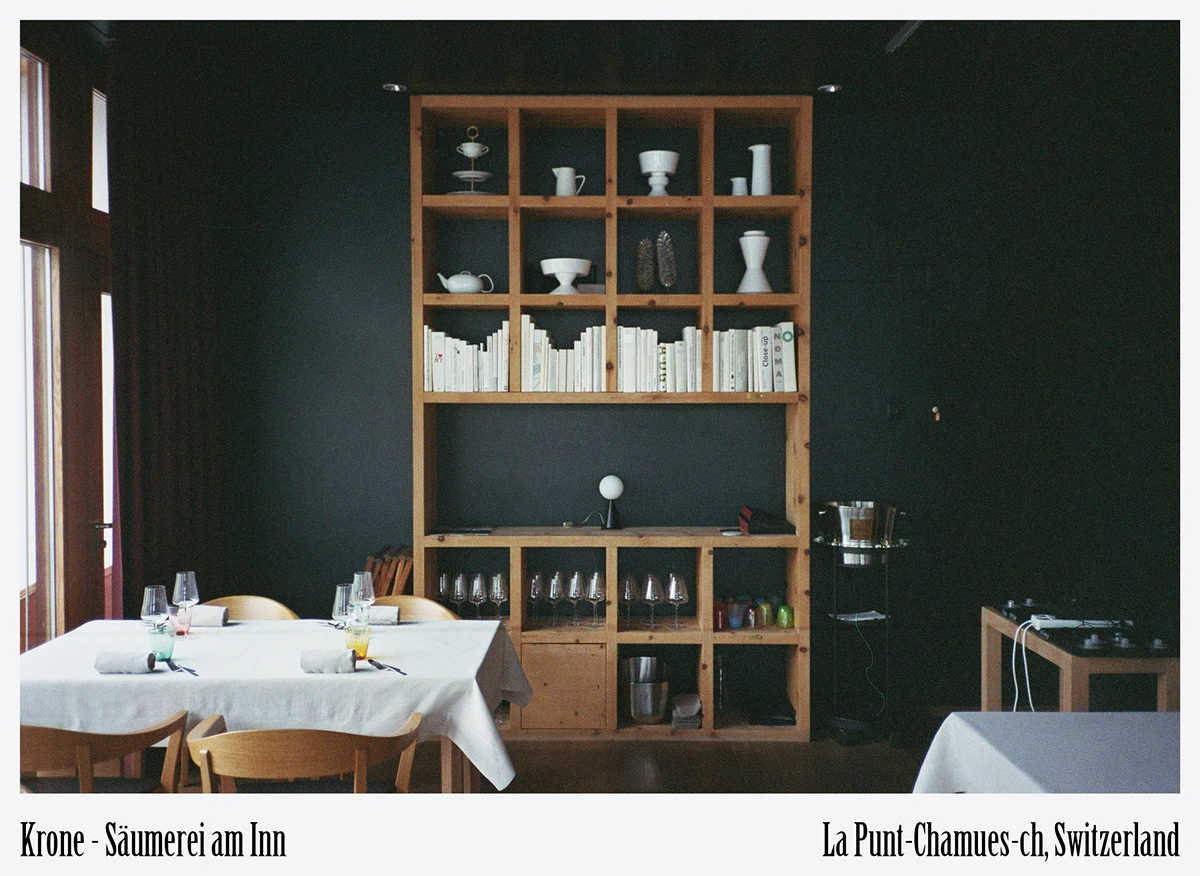
Naturally sourced ingredients and local gastronomy
The gastronomic offering at Hotel Krone is built around naturally sourced ingredients. The restaurant privileges produce grown without synthetic pesticides or fertilizers, aligning with principles of regenerative agriculture.
Animal products are sourced from farms practicing humane and environmentally responsible methods. Wild herbs and plants from the surrounding area are integrated into the menu, emphasizing an edible landscape approach that reduces dependency on industrial food systems.
Sustainable tourism and community integration
Sustainability at Hotel Krone is inseparable from its relationship with the local community. Hiring practices prioritize residents of the valley, contributing to economic resilience in a region heavily dependent on seasonal tourism.
Cultural programming often involves local artists, authors, and craftsmen, fostering a tourism model based not on extraction but on reciprocal exchange. Guests are thus introduced to the historical, linguistic, and ecological complexities of the Engadin valley. Workshops on traditional crafts, local agricultural practices, and environmental conservation are periodically offered, reinforcing the idea that sustainable tourism requires active learning rather than passive consumption.
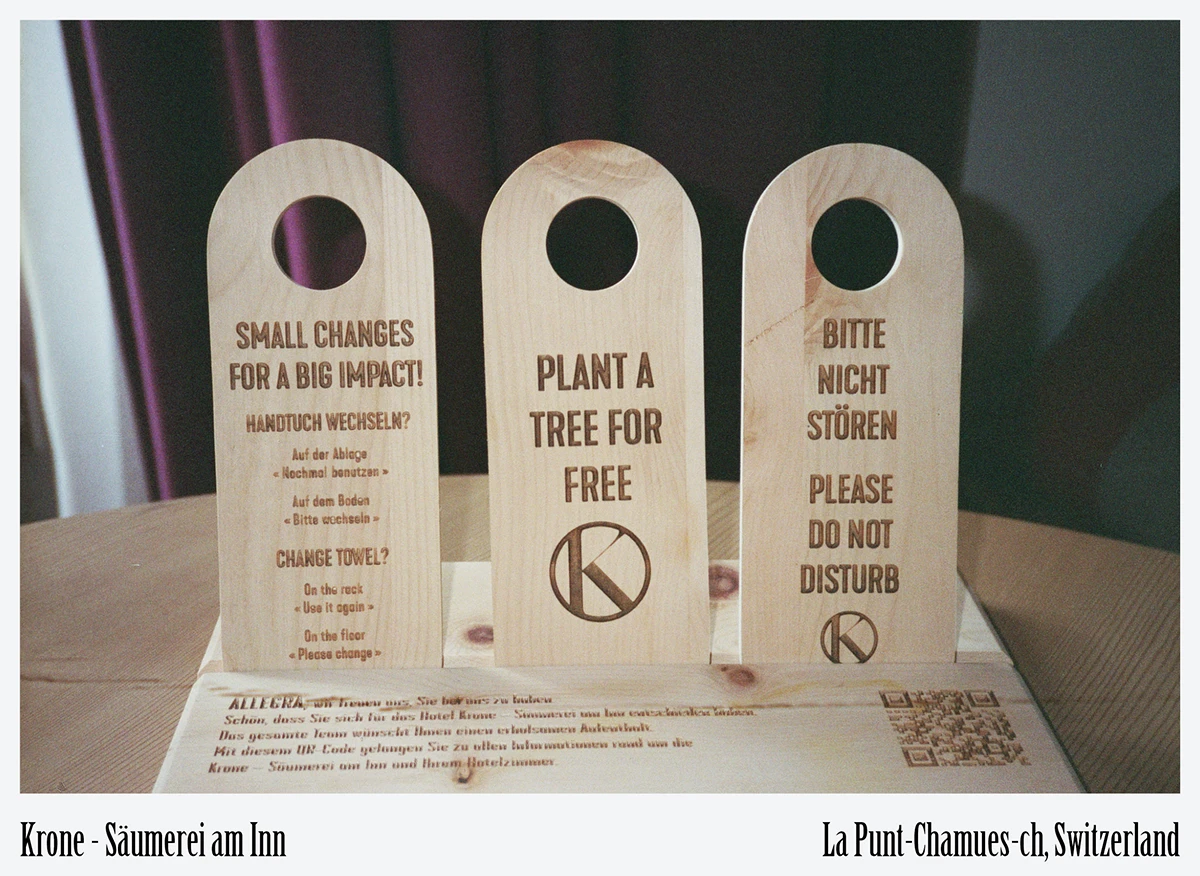
Sustainable art and cultural representation
Within the hotel’s shared spaces, art curation follows principles of sustainability. Exhibited works are created using recycled, salvaged, or naturally derived materials. Collaborations with local and regional artists ensure that cultural production remains connected to the immediate environment.
Exhibitions often explore themes such as indigenous cultures, rural identity, and biodiversity, resisting generic décor solutions in favor of engaged, place-specific narratives. Frames, pedestals, and other exhibition supports are crafted from reclaimed wood or recycled metals, completing the cycle of responsible material usage.
Art is presented as a living, evolving part of the hotel’s identity, rather than a static decorative background. This approach fosters an ongoing dialogue between guests, local communities, and the natural landscape.
Rare independent titles and multilingual references
The hotel library curates rare and independent publications addressing topics such as sustainable design, regenerative agriculture, and eco-conscious architecture. Selected titles often come from independent bookstores and publishers specializing in niche or multilingual works that foreground environmental, social, and cultural complexity.
By privileging independent publishing, Hotel Krone aligns its intellectual environment with its material ethics: resisting homogenization, promoting diversity, and nurturing alternative knowledge systems that rarely circulate in mainstream markets.
Upcycling materials in everyday practice
Beyond its structural restoration, Hotel Krone Säumerei am Inn integrates upcycling into its operational routines. Scraps from renovation works are transformed into furniture pieces, decorative elements, or maintenance tools.
Discarded textiles are reworked into cleaning cloths, small accessory items, or donated to local initiatives. Kitchen waste, where not composted, is used in community agricultural projects aimed at soil regeneration.
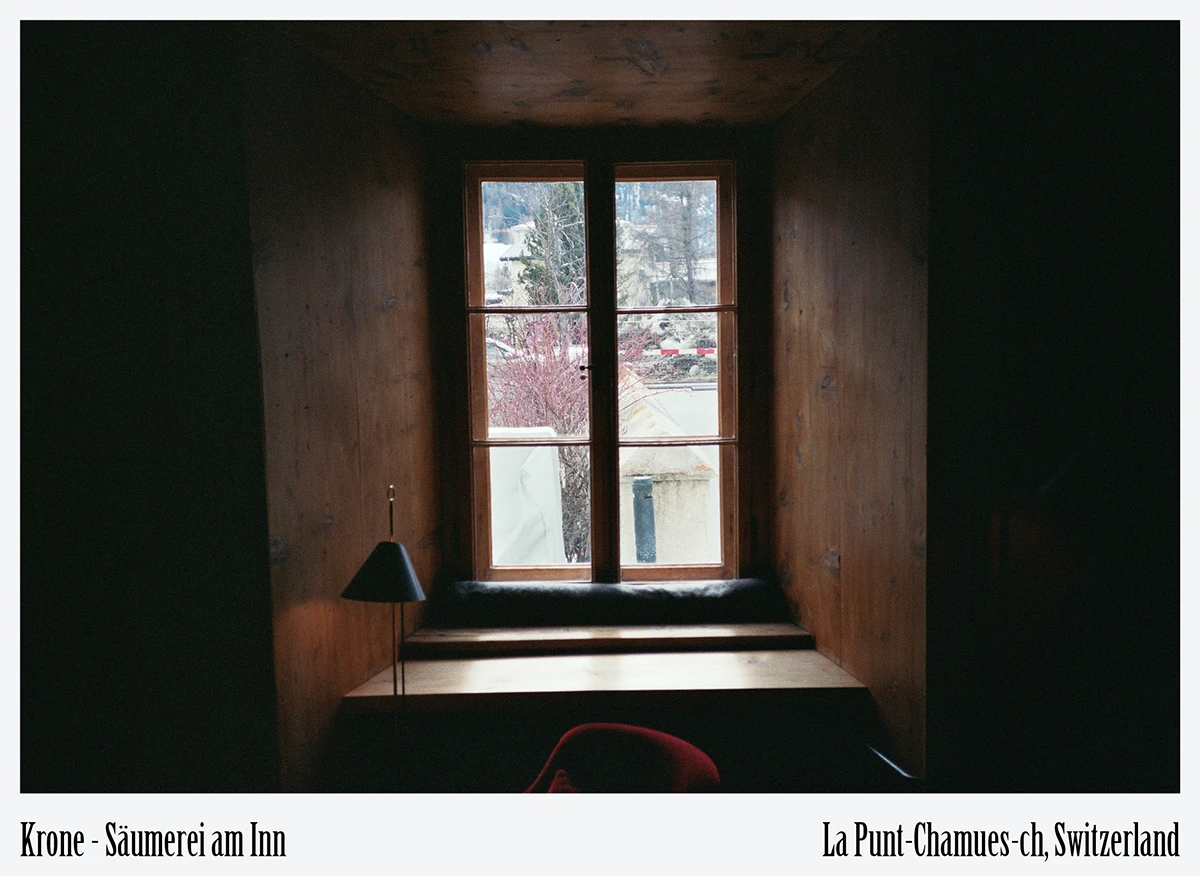
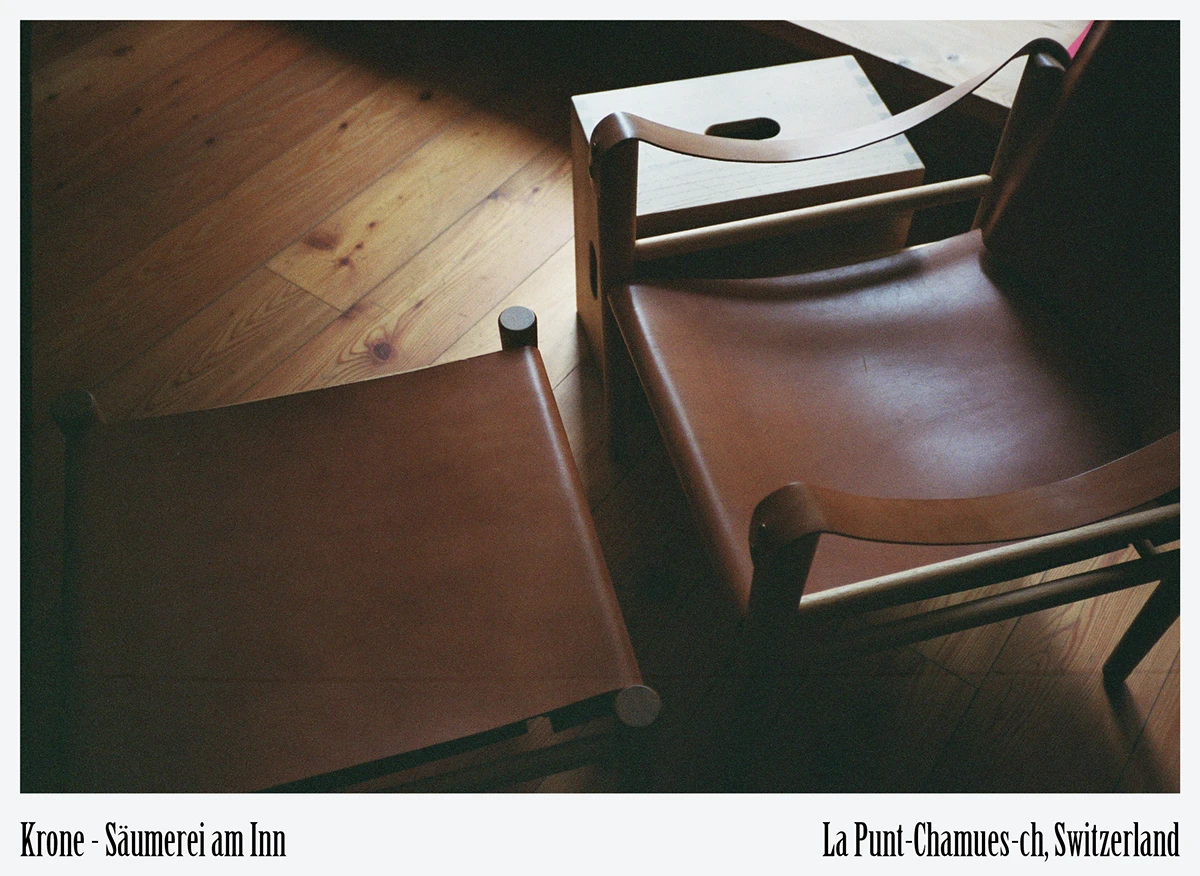
Sustainability as a process, not aesthetics
At Hotel Krone Säumerei am Inn they think that sustainability in hospitality must extend beyond visible gestures or isolated green initiatives. That it demands a holistic rethinking of how space is constructed, maintained, and inhabited.
By embedding low-impact strategies across architecture, materials, food systems, and cultural programming, the hotel proposes a model of tourism rooted in resilience rather than extraction.
This approach is not positioned as innovation but as continuity — a recognition that the future of hospitality will depend not on inventing new experiences, but on restoring and respecting the ecological and cultural systems already in place.
Krone Säumerei am Inn
Hotel Krone Säumerei am Inn is a 16th-century building located in the Engadin valley. Its recent restoration prioritized the reuse of original materials and local craft techniques. Interiors retain rough architectural elements and a minimal selection of furnishings. The hotel operates with low-impact practices, integrating into the natural and cultural landscape of the region.
